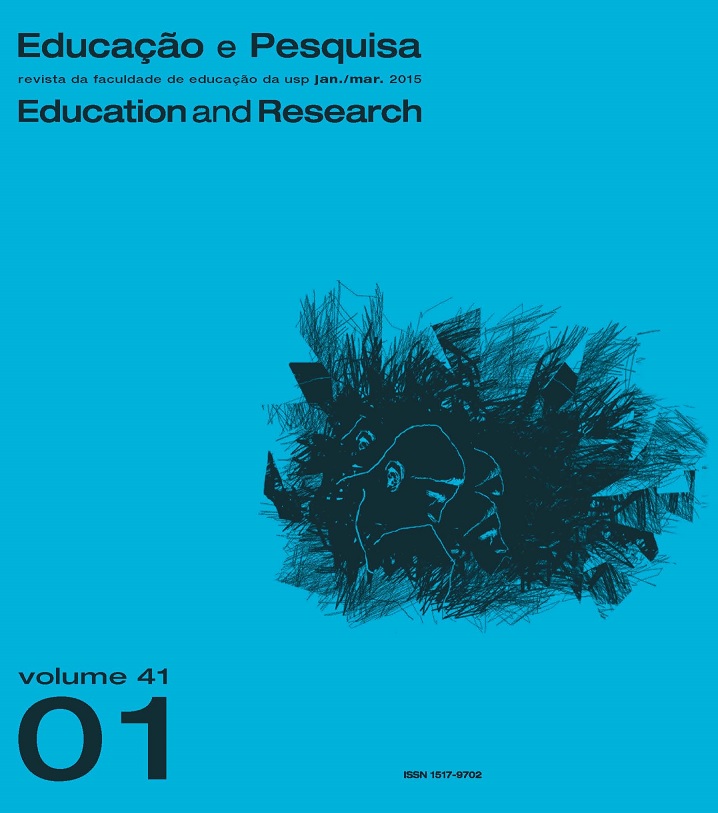Knowledge, art, and education in Plato’s Republic
DOI:
https://doi.org/10.1590/S1517-97022015011682Abstract
In the present article, we investigate the relationship between art, education, and politics in Plato’s The Republic, and study in what way Platonic gnoseological assumptions can clear tensions in this relationship. We seek to reconstruct Plato’s main arguments for his criticism of the mythopoeic education. We defend the hypothesis that Plato, in The Republic, recognizes the formative potential of art, particularly poetry, although because of ontological and gnoseological reasons, he had to subordinate it to philosophy. The nature of this study’s questionings and goals required consulting bibliographical sources for which we used hermeneutic reading techniques, with emphasis on apprehending the meanings of essential concepts based on their Greek origin. We present explanations and comments about The Republic, but also about Ion, Hippias Major, and critical literature selected as more relevant among the sources researched. Our conceptual, reflexive analysis showed that the mythopoeic culture is an indispensable concept to the general education found in Plato’s Republic, although an insufficient one to achieve, by itself, the ideal of education expressed by the concepts of truth, goodness, and beauty. We conclude that only philosophy, as it overcomes the charms of language, senses, and the sensible world, can extend the limits and possibilities of art, particularly art that uses words. As the just city would only be possible by equating the king with the philosopher, there cannot be a true poet who is not also a philosopher.Downloads
Download data is not yet available.
Downloads
Published
2015-03-01
Issue
Section
Articles
License
Authors assume exclusive responsibility for the concepts expressed in their articles, which do not necessarily reflect the journal’s opinion.
Permission to photocopy all or part of the material published in the journal is granted provided that the original source of publication be assigned.
How to Cite
Knowledge, art, and education in Plato’s Republic . (2015). Educação E Pesquisa, 41(1), 203-215. https://doi.org/10.1590/S1517-97022015011682



